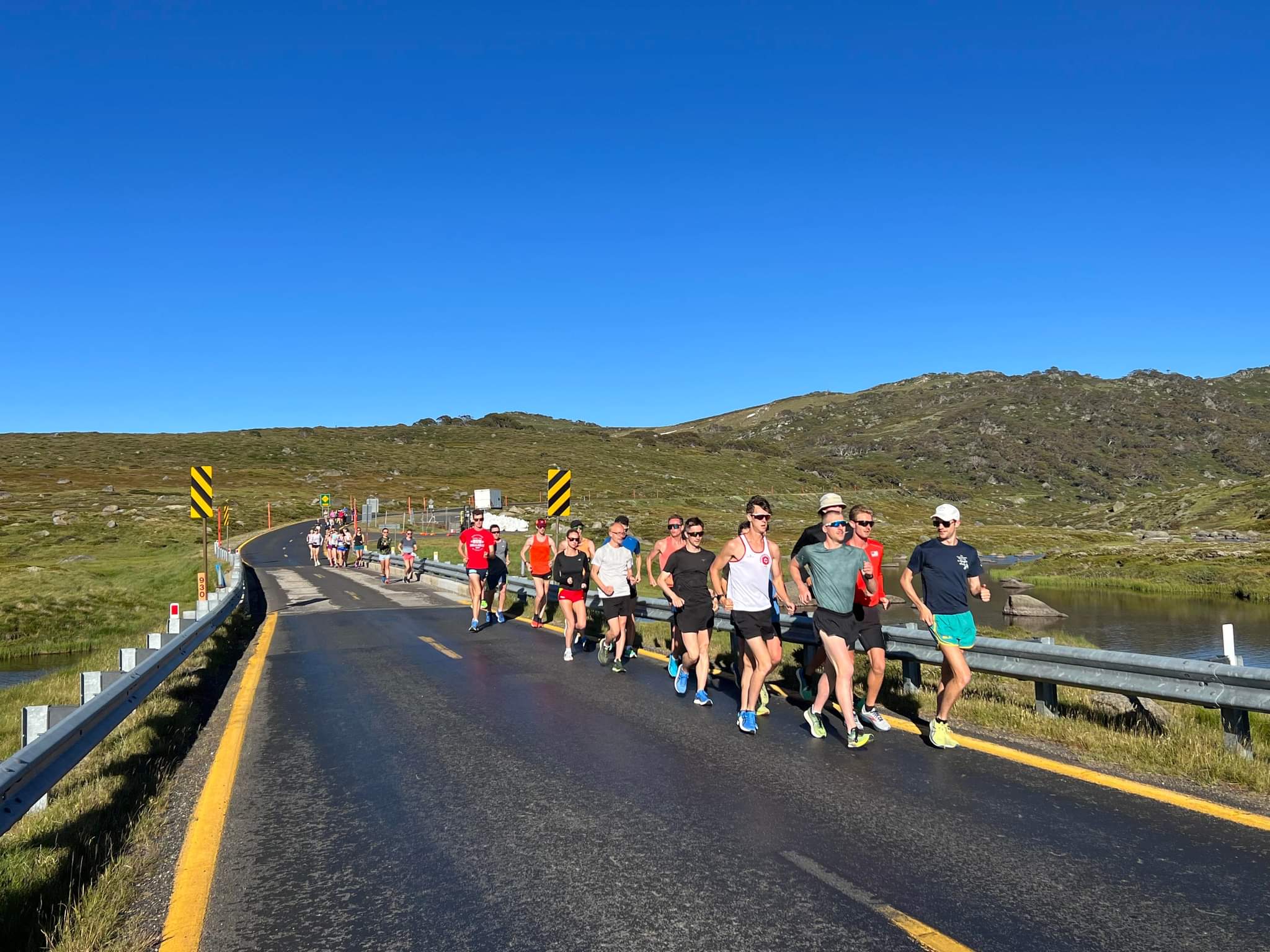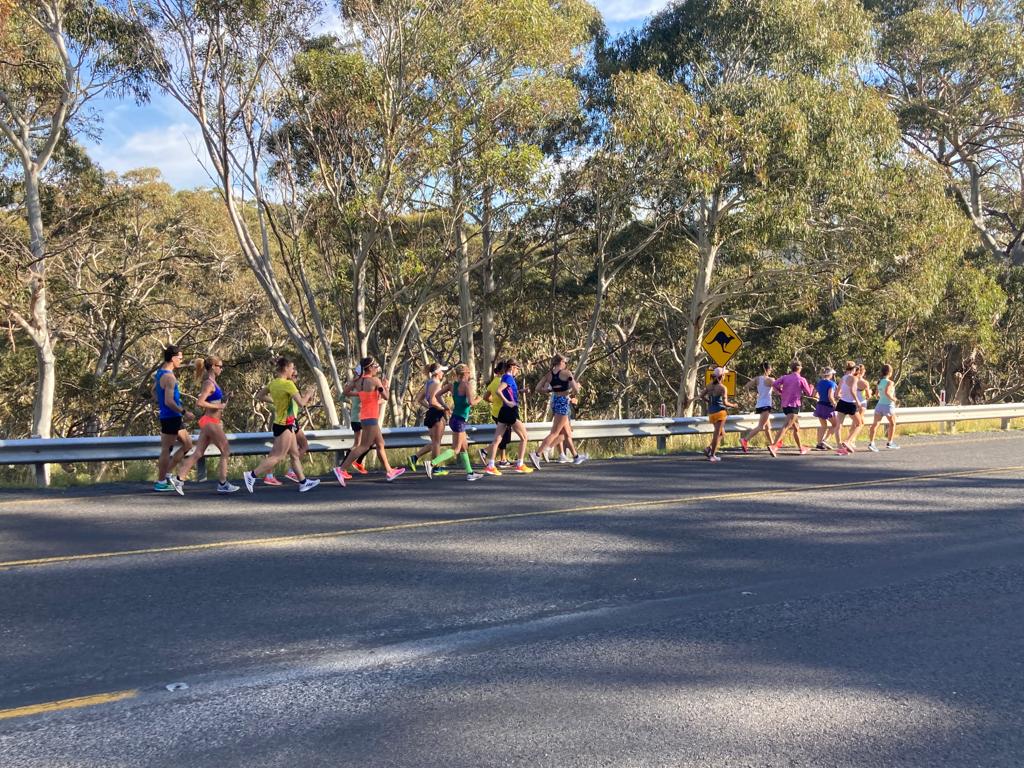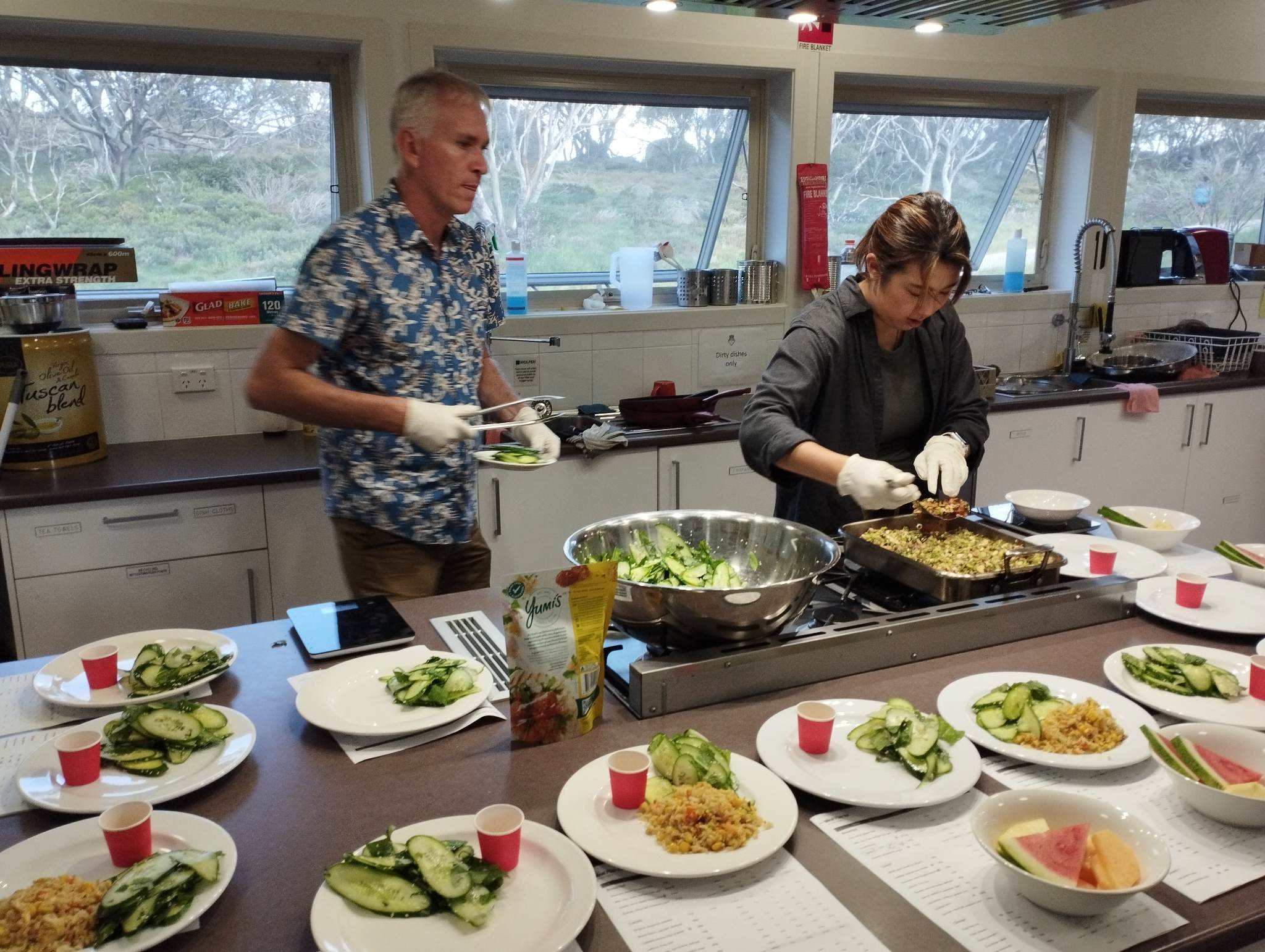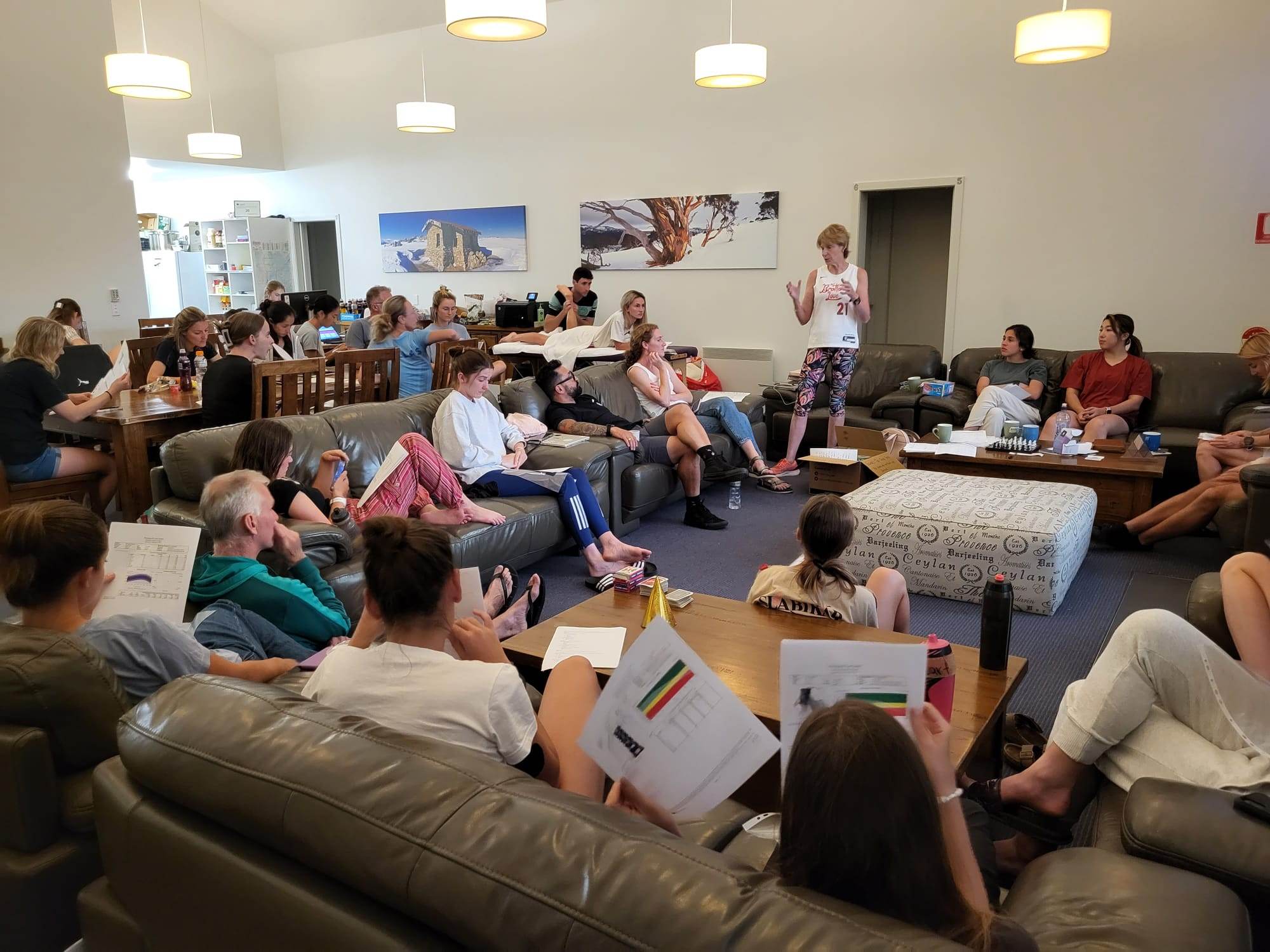The annual Supernova 7 trainings camp (and metabolic study) was held in Australia as usual - but the base venue was settled this year in Perisher Valley, at altitude (1750m).
Perisher Valley village (located in NSW Alps) was chosen over the usual Thredbo village because of its higher altitude (1720m compared to 1370m). It has the added advantage of being much quieter, meaning less of an issue training on the surrounding roads.
The study of 2023 started with 23 girls from all over world, amoung them the double European champion, World Champs 4th place Antigoni Ntrsimpioti from Greece, Olympic silver medalist Sandra Lorena Arenas and European 35k runner-up Raquel Gonzalez.
The participants came from Hong Kong, Germany, France, Lithuania, Hungary, Finland, Spain, Columbia, Greece, Slovakia, Ecuador, Italy and lots of local walkers exceeded the team. Not only the Australian junior team but some of the biggest men walkers joined also the team like Canadian Evan Dunfee, the Swedish Perseus Karlström and Declan Tingley, Rhydian Cowley from Australia.
Here is the breakdown of walkers
International women
Sandra Lorena Arenas (COL), Magaly Bonilla (ECU), Raquel Gonzalez (ESP), Enni Nurmi (FIN), Clemence Beretta (FRA), Eloise Terrec (FRA), Bianca Maria Dittrich (GER), Antigoni Ntrismpioti (GRE), Sia Nga (Jessica) Ching (HKG), Anett Torma (HUN), Valentina Trapletti (ITA), Austeja Kavaliauskaite (LTU), Monica Vaiciukeviciute (LTU), Brigita Virbalyte (LTU), Hana Burzalova (SVK), Ema Hacundova (SVK), Claudia Zarska (SVK)
International men
Evan Dunfee (CAN), Marius Ziukas (LTU), Perseus Karlstrom (SWE)
Australian women
Hannah Mision (NSW), Hannah Bolton (NSW), Elizabeth McMillan (NSW), Alannah Pitcher (NSW), Emma Blanch (NSW), Samantha Findlay (SA), Gabriella Hill (SA), Nellie Langford (SA), Olivia Sandery (SA), Rebecca Henderson (VIC), Jemima Montag (VIC), Char Hay (VIC), Alanna Peart (VIC), Alex Griffin (WA)
Australian men
Tim Fraser (ACT), Carl Gibbons (NSW), Jack McGinniskin (NSW), Dylan Richardson (NSW), Will Bottle (TAS), Rhydian Cowley (VIC), Kyle Swan (VIC), Will Thompson (VIC), Markus Wakim (VIC), Declan Tingay (WA)
What is the Supernova 7 project about ?
One way in which altitude training may enhance sports performance is by causing the body to produce new red blood cells. These cells contain haemoglobin, a molecule that attaches to oxygen and carries it to working muscles. A rise in hemoglobin, leads to a desirable rise in oxygen transport capacity and therefore potential benefits for endurance athletes. Another strategy to enhance performance is the manipulation of body composition. Indeed, elite athletes can adopt a periodised approach (the systematic organisation of interventions across the training year) with regards to their body composition, choosing to train at a higher body mass and body fat content which provides resilience against illness and injury risk, before undertaking modest weight/fat loss in the pre-competition period to reach a physique associated with optimal performance. This manipulation of body composition requires the athlete to restrict energy intake, exposing them to a period of low energy availability (LEA) the term used to describe a mismatch between an athlete’s energy intake and the energy expended in training and day to day metabolic function


The topic of the current year's experiment was the altitude trainings camp effect of the haemoglobin of female walkers. To this study was added an extra diet program: in the first two weeks everybody followed the HEA (high energy) diet but on the last 8 days half of the group was selected to continue with LEA (low energy) diet.

The first "warm-up" week was based in Canberra at AIS (Australian Institute of Sport) where different measurements were taken like DXA, VO2, RMR. After that the whole team traveled to Perisher Valley which is one of the highest point of Australia and is around 3hrs drive from the capital.
During the three-weeks altitude camp, the walkers participated in RMR and blood test at half time and at the end of the camp again.
The camp has once again been supported by a large group of support personnel including physiologists, dietitians, physios, massage therapists, coaches, a chef and a camp counselor from ACU, AA and the National Institute of Sport Network. Athlete testing has included Resting Metabolic rate, a graded treadmill test to attain Vo2 Max, Exercise economy and a lactate profile, DXA scans for body composition assessment, Hemoglobin Mass Testing, and of course a performance measure in the form of 10,000m competitions.
For the last 5 days, the walkers return to AIS to repeat all of tests again. Before the altitude camp was also a performance control competition held which was part of the race walking tour event (silver tour). On the closing day of the camp, a performance check race will be settled again.
It is the biggest ever camp: around 50 walkers participated in it, with the staff together the number of the group was over 70. Some of the race walkers will stay one more week after the camp to attend on the 20k national championships in Melbourne, Fawkner Park
Marcia dal Mondo still wants to thank the athlete who prepared this report (and photos), although he preferred to remain anonymous. Thank you.
More photos in photo album
